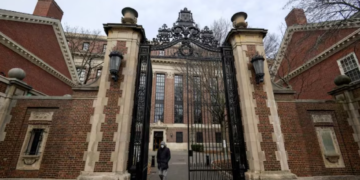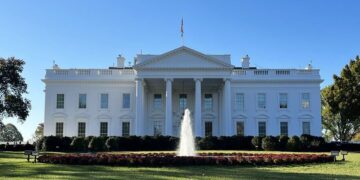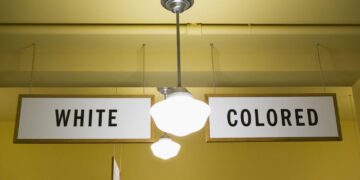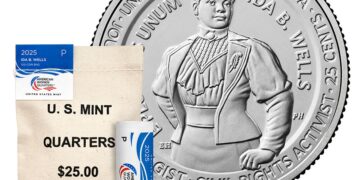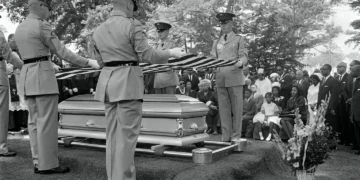Rev. James Lawson Jr. addresses the audience in Murfreesboro, Tennessee, in 2015. Photo by Mark Humphrey/AP.
June 10, 2024 Story by: Editor
Rev. James Lawson, a pivotal figure in the Civil Rights Movement known for his dedication to nonviolent activism and his role in desegregating Nashville’s lunch counters, passed away on Sunday at the age of 95.
Lawson, who was not only a minister and professor but also a descendant of enslaved people, embodied the ideals of nonviolent protest amidst adversity.
Rev. Christian Washington of Holman United Methodist Church in Los Angeles, where Lawson served as pastor from 1977 to 1999 and later as pastor emeritus, confirmed his passing to The Tennessean on Monday.
Lawson’s commitment to nonviolence was shaped by Mohandas Gandhi’s teachings and his close association with Rev. Dr. Martin Luther King Jr. However, it was his mother’s question about the efficacy of responding to racism with violence that profoundly influenced his philosophy.
“His passing before Juneteenth is a reminder that our nation’s journey from slavery to freedom started in the hearts of people like James Lawson spellbound by freedom,” President Joe Biden stated on Tuesday.
In the early 1950s, Lawson was imprisoned as a conscientious objector during the Korean War. Expelled from Vanderbilt University and arrested for leading student protests, he learned about Gandhi’s nonviolent protests during his incarceration.
Lawson collaborated with civil rights icons like King, Diane Nash, John Lewis, and C.T. Vivian, promoting nonviolent activism during the late 1950s and early 1960s. King encouraged Lawson to move south for a greater impact, leading him to Vanderbilt University as one of its few Black students.
In 1959, Lawson began nonviolence workshops for young Black students from Nashville colleges, including future leaders like Lewis, Nash, and Bernard Lafayette. His teachings covered both the philosophy and practical application of nonviolent resistance.
Nash recounted in a 1985 interview the intensive roleplays Lawson conducted, preparing students for the violence they would face during sit-ins.
“There were many things that I learned in those workshops, that I not only was able to put into practice at the time that we were demonstrating and so forth, but that I have used for the rest of my life, that have been invaluable in shaping the kind of person I’ve become,” Nash said in a 1985 documentary.
Lawson’s workshops led to the successful Nashville lunch counter sit-ins, though his role resulted in his expulsion from Vanderbilt in 1960. That same year, he drafted the first purpose statement for the Student Nonviolent Coordinating Committee (SNCC), an organization that significantly influenced the Civil Rights Movement. He was arrested in 1961 during the Freedom Rides and imprisoned in Mississippi.
In 1968, Lawson called on King to support the sanitation workers’ strike in Memphis and led a silent march honoring King after his assassination.
“People should be treated equally and justly,” Lawson told The Tennessean in 2013, reflecting his lifelong commitment to justice inspired by his faith.
Raised in Massillon, Ohio, among ten siblings, Lawson’s early encounters with racism and his mother’s guidance steered him toward nonviolence.
From Nashville to Memphis and beyond, Lawson’s legacy continues to be celebrated. “The world has lost an irreplaceably powerful leader in the fight for social justice,” said Metro Nashville Council member Joy Styles. “We owe Rev. Lawson a debt of gratitude for how he led change for the world that we live in.”
Lawson’s influence extended beyond Nashville. Historian David Ewing highlighted his role in mentoring students like John Lewis and Diane Nash, noting the peaceful success of the Nashville lunch counter sit-ins.
Vanderbilt University recognized Lawson’s contributions by appointing him as a divinity school professor in 2006 and launching the James Lawson Institute for the Research and Study of Nonviolent Movements in 2021.
Current Vanderbilt University Chancellor Daniel Diermeier described Lawson as a hero and “a passionate advocate for justice and a more perfect union.”
In 2023, a Bellevue high school was named after Lawson, and earlier this year, a stretch of Adams Boulevard in front of Holman United Methodist Church in Los Angeles was dedicated to him.
“Up until a few months ago he was still doing nonviolent protest seminars, well into his 90s,” Rev. Christian Washington said.Lawson’s enduring impact on the fight for social justice and nonviolent activism remains a testament to his life’s work. Source: The Tennessean



